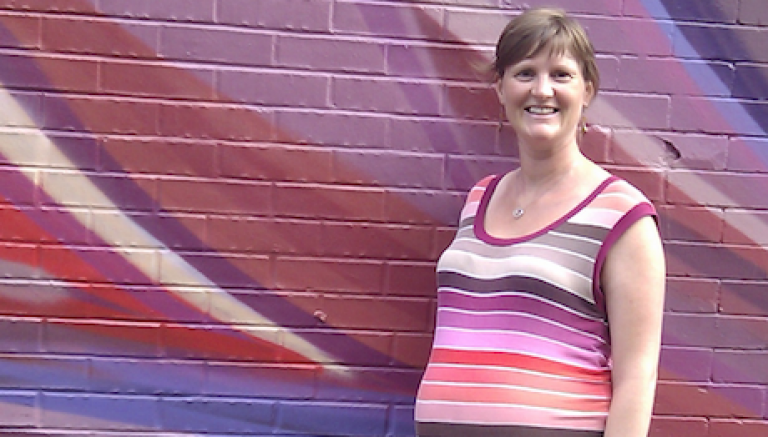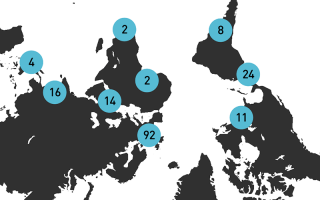Jennifer recounts experiences of studying MSc Building & Urban Design in Developmentat the Development Planning Unit

In reflection it is clear that I have always had a focus: I am interested in people, and the role that architecture can play in improving people’s lives. While studying architecture at the University of Toronto I spent time in Europe and Australia focusing on communities. My final thesis project responded to the changing social demographics in Toronto and the city’s housing shortage. I was always fascinated by the nuances of different cultures, climates, and contexts. I was always interested in the people, the gritty details, and the real challenges which face cities.
Following my graduation I elected to continue in my own trajectory, and accepted an internship offered through CIDA, organised by a great Canadian NGO – Rooftops Canada, and hosted by the NGO Built Environment Support Group in South Africa. It was there, in an NGO setting, working with communities and the built environment that I was truly inspired.
When many of my former classmates found jobs in architectural studios, aspiring to be ‘starchitects’, I was completely in my element working with a handful of residents trying to set up a youth centre in their local township, or building models of pit latrines for community workshops.
After South Africa I moved to London UK. Even in a more traditional work environment my interests in people and to work on architectural projects which improved people’s lives came through. I was always asking provocative questions – who does this benefit?, is this accessible for all involved?, why?.... I was trying to stick up for those not in the room, those not party to the decision-making, but in many cases those who our decisions affected the most.
Over the years I contributed to some great projects; housing for older people, schools, social enterprise venues.... And when work wasn’t satisfying enough, I also volunteered with Crisis UK and Architecture for Humanity UK.
When deciding to study the BUDD programme at the DPU I opted for the part-time route, in parallel with continuing to work within an architectural practice. By this time I was a registered architect in the UK with 6 years experience. For me this was the right time to recalibrate, rethink, requestion my daily professional practice. Having one foot in practice and one foot in academics wasn’t easy, both practically and experientially. But what was extremely beneficial was that on a daily basis my studies in the BUDD programme pushed me to critically analyse my work, to challenge the routine around me, seek alternatives and where appropriate make unorthodox decisions.
More than ever before, I was coming into my own. I tried to use what I was learning at the DPU on a regular basis, applying theory not only to hypothetical situations but to real projects, wherever possible. And although I regrettably missed numerous spontaneous and certainly amazing conversations taking place in the so-called ‘BUDD-room’ (basement of the DPU) during out-of-class hours, I was processing my learning too, just in a different way.
My two years in the BUDD programme, where I encountered 2-times as many inspiring classmates (alumni 2010 & alumni 2011!), and in some ways had twice the time to develop my thinking and practice as a development practitioner albeit on a ‘part-time’ basis, has by far been my most professionally formative experience. And it is now, that I feel the most self-aware with my professional principles.
Today, like many others from my two cohorts I’m exploring the range of professional options around me. I’m sure many would agree that finishing the Masters is not the end of the ‘hard work’, but in many cases the beginning. Finding work in the current climate isn’t easy, and finding meaningful, rewarding and socially beneficial work is even harder!! Today I’m living in Montréal Canada, focusing on improving my French language, and have recently entered parenthood, and so, my professional life is temporarily on hold. That said, I am already planning my return as a Development Practitioner and in academia. And so, what I leave you with is not a conclusion, but some ideas for continuing your journey in the field of development.
1. GET TO KNOW YOUR CITY: Who are the movers and shakers? Who are already making a difference, and what can you offer them?
2. GET INVOLVED: Attend lectures and public forums, events and activities. Listen, but also contribute.
3. START IN YOUR OWN COMMUNITY: Community of Interest, Neighbourhood Communities.
4. NETWORK & COLLABORATE: Get together and work with others!
5. BE STRATEGIC & OPEN TO CHANCE: All at the same time.
6. And most importantly.... ‘HOLD ONTO A REAL POINT’ as French philosopher Alain Babiou has suggested. In all the things you do in the future in your efforts to improve peoples’ lives it is necessary to find and ground your activities on a personal/local point of orientation where the point, no matter how deplorable and impracticable, you actively hold on to it, whatever the cost! In taking this hard stance, which will undoubtedly be contested and generate some of its own struggles and hardships, you must keep in mind that it is through these activities from which you free yourself from the status quo and begin to see the opportunities for making possible the impossible - true transformative development.
 Close
Close


